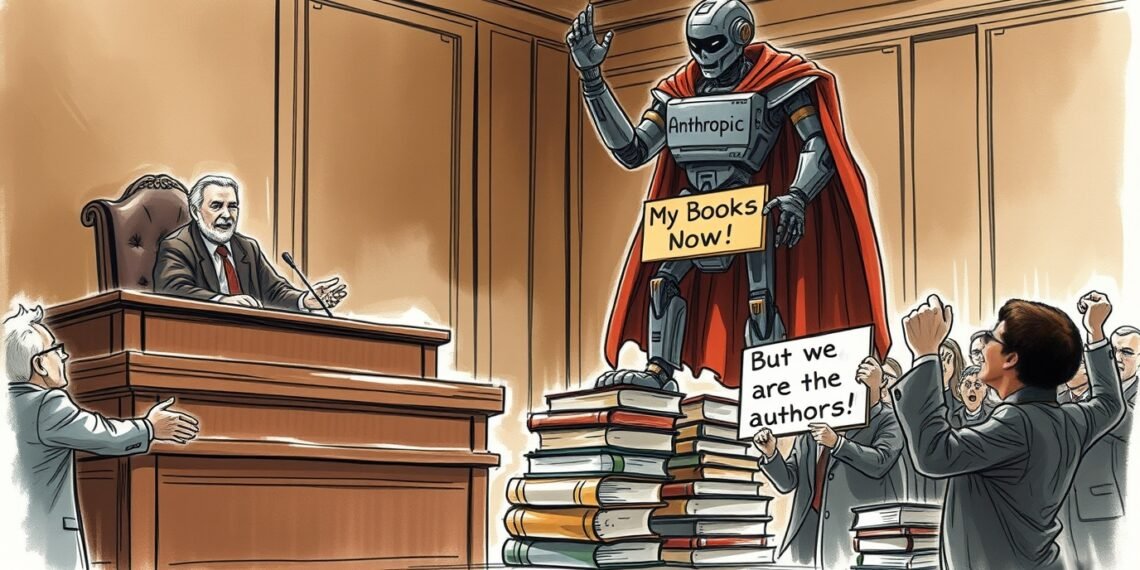A recent ruling by US Senior District Judge William Alsup affirmed that Anthropic’s use of copyright-protected books for AI training is considered “exceedingly transformative” and qualifies as fair use. This marks the first time a court has ruled in favor of an AI company regarding fair use, signaling a significant win for generative AI firms while presenting difficulties for authors. Fair use allows the use of protected material without consent from rights owners if specific conditions are met. Technology companies argue these exceptions are crucial for accessing extensive human-created content essential for advancing sophisticated AI models, while writers maintain that AI’s use of their work does not meet fair use standards.
Further complicating the matter, various publishers and artists are pursuing legal action against AI firms like OpenAI, Meta, and Midjourney for alleged infringement of their intellectual property. In Anthropic’s case, authors claim their works were unlawfully acquired through piracy, as noted in Judge Alsup’s ruling. The decision highlights that Anthropic’s co-founder, Ben Mann, unlawfully downloaded millions of unauthorized books and misguidedly sought physical copies of previously pirated works to create a bibliographic catalog. Although the court found that Anthropic’s actions in acquiring and digitizing print books qualified as fair use, the earlier piracy actions prompted an order for a new trial concerning the company’s permanent library. This ruling could have far-reaching implications for the AI sector and the creative community at large.
The ainewsarticles.com article you just read is a brief synopsis; the original article can be found here: Read the Full Article…



